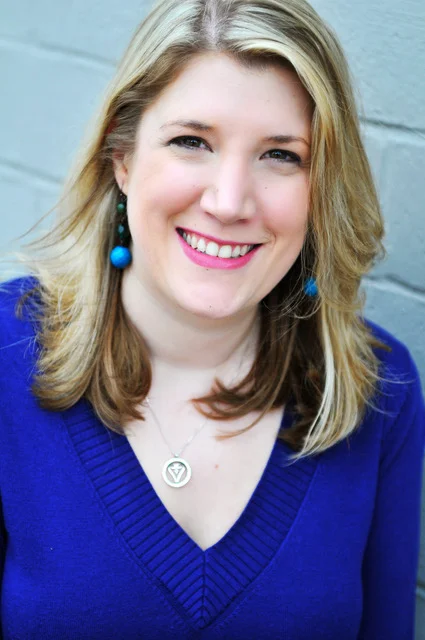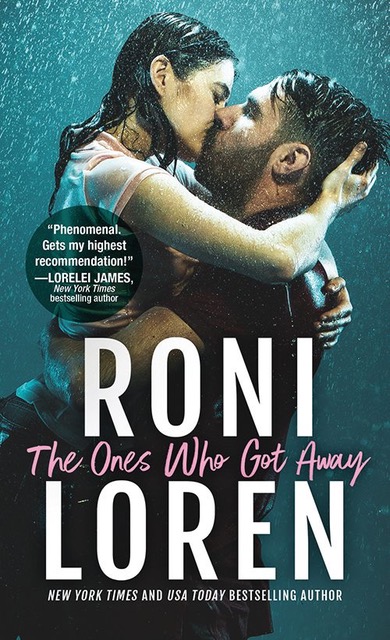I’m still regularly tweaking my writing process even after ten years of writing professionally. So learn all you can, be open to feedback and advice but also pay attention to how your creative mind is best served. You are your own science experiment.
Romance author Roni Loren put aside writing to be ‘practical’ in college but it came back with a vengeance several years later. We chat to her about the challenges of not being a fast writer, knowing when your book is ready for publication and her maximum productivity writing routine.
Please give us a brief overview of yourself and your work.
Hi there. I’m Roni Loren, and I write both contemporary and erotic romance. My most recent series is a contemporary romance series that follows the survivors of a school shooting twelve years later as they try to navigate their lives and find love. The first book in the series, The Ones Who Got Away, has recently been chosen as a Best Book of 2018 by both Kirkus Reviews and Amazon. The second book, The One You Can’t Forget, was chosen as a Best Book of 2018 by Publishers Weekly.
What made you want to be a writer? How did you begin writing?
I was an avid reader from very early on (thank you Babysitters’ Club) and decided I wanted to be a writer in fifth grade when our teacher read us A Wrinkle In Time. I wrote my first book at fifteen, which was really 150 pages of New Kids on the Block fan fiction, and never got up the nerve to let anyone read it. I put writing aside in college to be “practical” and got a masters degree in social work. I worked in that field for a few years, but when I had my son in 2007 and decided to stay home, the writing bug came back with a vengeance. The third book I wrote after I started writing again (Crash Into You) was the one that landed me an agent and a book deal in 2010.
Do you have a writing routine?
I am kind of obsessed with productivity, paper planners, and routines. So I’m often tweaking my writing routine to get the most out of it. Right now, my routine is that I get my non-writing work done in the morning—emails, social media, blogging, newsletters, etc. I have lunch and then write from 12:30-4:30 every weekday. I have a general idea of the word count I want, but I’ve learned over the years not to let work count be the only measure of a good writing day. I’m a writer who needs a lot of thinking time, so sometimes those writing hours may be half brainstorming. As for motivation, I can’t count on that, so it’s not a factor. My writing time is my writing time whether I’m feeling motivated that day or not.
Do you have any advice for aspiring authors?
I think new writers can get overwhelmed by all the advice out there. The most important thing to remember is that there isn’t one right way to write. Your writing process is going to be an ever-evolving thing and is going to be specific to how your individual brain works. For instance, I don’t outline my books because planning that far ahead shuts down my creative process. Other people can’t write unless they have an outline. I edit as I go. Others will tell you that’s a cardinal sin. (Psst, it’s not.) You can’t know until you experiment with your process. I’m still regularly tweaking my writing process even after ten years of writing professionally. So learn all you can, be open to feedback and advice, but also pay attention to how your creative mind is best served. You are your own science experiment.
What do you think is the biggest challenge for new authors?
Knowing when your book is ready for the public eye. When I started, self-publishing was in its infancy so I had to go through the traditional process of querying agents and being rejected. There were people telling you if your book was ready or not. Now writers have more opportunities to get their book out there, which is amazing, but it also took away a layer of vetting. It’s really hard to judge your own book. And having your family members and friends tell you it’s good is not a good measure on whether readers who don’t know you are going to like it. I’m really glad I wasn’t able to put the first book that I queried out in the world. It wasn’t good. That would’ve been my debut, and I cringe at the thought. So I think new authors have to be really careful, especially if it’s their first book, to make sure it’s the one you want to debut with. Get beta readers who are not related to you or married to you. Find people who are going to give you the tough, unvarnished feedback. Make sure you’re putting your best work out there because you only get to debut once. If a reader doesn’t like your first book, you’ve lost them for future ones.
What methods of book marketing do you find the most effective?
Writing the best book I can. I know that seems obvious, but that’s the best way to have people want to buy more books. Aside from that, I put most of my focus on my newsletter. I do social media and keep up with that, but the most direct connection to my readers is that newsletter. So I take a lot of time populating it with interesting posts and information. It’s not a newsletter that’s all about my books. I recommend other books, talk about what great TV shows or movies I’ve watched, write posts about productivity, self-care, etc. I want subscribers to get something useful out of it beyond “buy my book.”
What struggles did you face in the writing/ publishing process?
My ongoing struggle is that I’m a writer who needs a lot of thinking time. That means I’m not a fast writer. A book takes me about six months to write, which is slow in a publishing world that is now focused on speed. I’ve tried a lot of ways to speed up and I end up making a mess of the book and have to rewrite it, so I’ve come to a point of acceptance. To write my best book, I need time. I’ve learned that readers will stick around if I put out good books, so that’s what I focus on. I write the best book I can as quickly as I can.
How do you handle rejection as a writer?
I think the rejection thing is hard early on, but it’s such a part of this business that eventually it becomes just another day at the office lol. I’ve realized that rejection is usually not about “you” but about what fits into the market right this second. That helps. Also, I think having the option of self-publishing also takes a lot of the sting that used to be part of rejection. You always have options now. That’s a beautiful thing.
How do you deal with isolation?
I’m a hard-core introvert so I kind of relish the isolation that comes with the job. I’m a happy girl sitting at my computer alone in my office. However, I do think it’s vital to have friends, particularly fellow writer friends, who you can chat with. I have a couple of friends who I text with throughout the day like they’re my co-workers. And they’re local friends so usually once a month or so we get together in person. I also am a member of a number of writer groups on Facebook and can chat with them when I need some social time. I meet a lot of writers at conferences like the Romance Writers of America and they become online buddies too. So even though I’m alone in my office right now, if I need to talk to someone, I could have a conversation going with any number of people within seconds. It’s nice to have that community around you. So, if you’re a new writer, go to some local conferences to meet other writers, join Facebook groups, and don’t be afraid to reach out.
You can find out more about Roni via her website, newsletter and social media channels: Facebook, Instagram and Twitter.




















